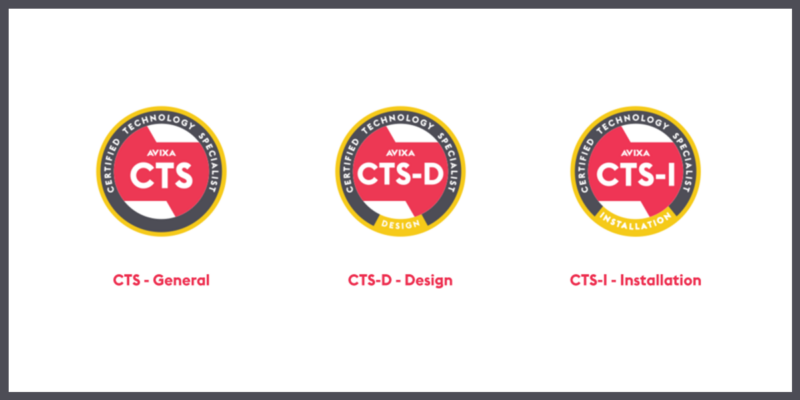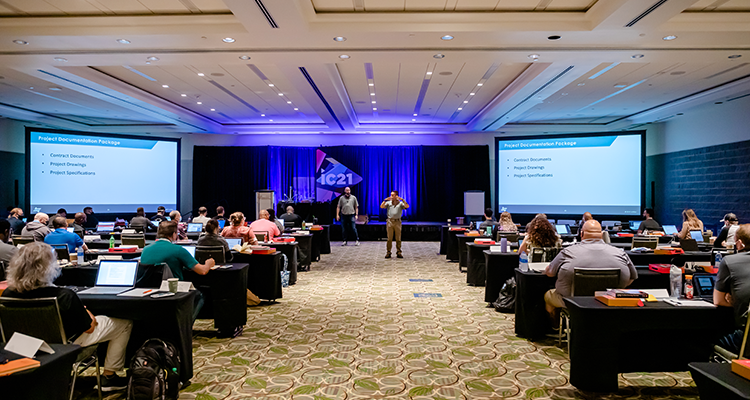New #AVChallenge: Programmers, Get Your CTS-D
 I just finished up teaching CTS prep for Avixa during the three-day classes before the InfoComm show. Not only was this a fun and a rewarding experience… I also came away with a new challenge. Several of my fellow instructors encouraged me to step up my certification game and get both my CTS-D and my CTS-I.
I just finished up teaching CTS prep for Avixa during the three-day classes before the InfoComm show. Not only was this a fun and a rewarding experience… I also came away with a new challenge. Several of my fellow instructors encouraged me to step up my certification game and get both my CTS-D and my CTS-I.
Why would a programmer need a CTS-I and a CTS-D? Well, first of all, the dual cert is just straight-up badass. But, bragging rights aside, programming is the glue that takes us from the client’s vision in the design phase all the way through to execution in the install phase. A programmer who understands everything about that process is a programmer who is going to be able to raise her hand and say “wait a minute, I don’t think that’s right…”
Raising my hand and saying “wait a minute…” is kind of my stock in trade. I don’t get invited to a lot of conference calls. I consider this a positive.
I work for a small company, where I wear a lot of hats. I might be onsite doing a service call when the client asks me to take a look at something that they want to upgrade. I might be onsite during an install when a technician asks for help with something. I want to know what I don’t know. I want to help my team.
Now, I know that a lot of programmers out there have the luxury of being 100 percent remote. And I know that none of us has anywhere even close to enough free time. That’s why I’m not actually daring my fellow programmers to go dual cert. (Although if anyone wants to make it a friendly competition, I’m more than happy to oblige.)
But the CTS-D is already within a programmer’s wheelhouse:
- We’re good at math.
- We’re natural problem solvers.
- We have to know about all of the different products that we’re controlling, because we have to talk to them, and we often help configure them as well.
- We tend to think things all the way to their logical conclusions.
- We’re good at asking clients questions about how they want their systems to work.
I suppose that I should say that a CTS-D is already within a *good* programmer’s wheelhouse.
There is real value in my fellow programmers learning enough about systems design to pass the CTS-D.
Why?
Because our industry is changing, and I think it’s important to have options. Consulting and design are two areas that a programmer who spends her time looking at an entire AV system and how all of the pieces fit together, are a pretty darn good fit (see: math, programmers good at).
So, to my fellow AV programmers out there… let me know if you accept my challenge. And I’ll let you know if you can find my name on the CTS wall next year with some extra letters after it.





